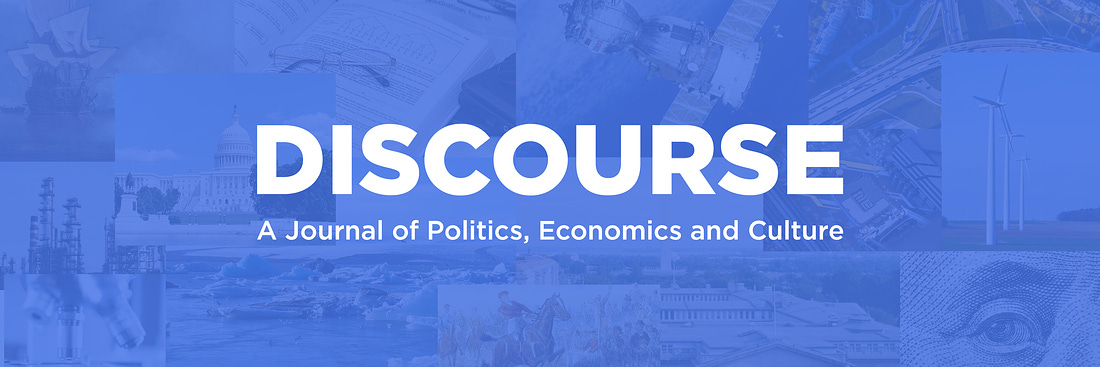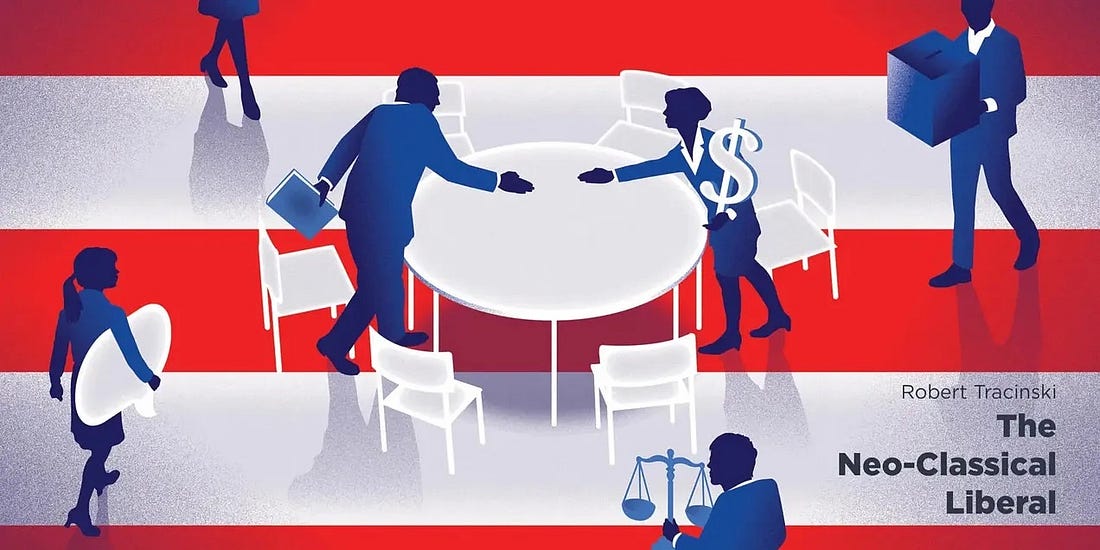|
 |
The Monkey’s Paw Administration
The second Trump administration granted some of my wishes—but I wish it hadn’t
Donald Trump’s second administration has been a rolling disaster in a lot of the ways I predicted. Not just tariffs, but unpredictable tariffs; a systematic abuse of executive power; and a shameful geopolitical realignment to put America in an alliance with Russia, while pitting us against our true allies.
Yet I have to admit that there are a few things this administration has done that I actually approve of. So why don’t I feel better about them?
There’s a classic short story in the horror genre about a talisman brought back from India by a traveler, a shriveled monkey’s paw that is cursed to grant its owner three wishes. I say “cursed” because when the monkey’s paw twitches, you get exactly what you wished for—but in a form so horrible that you immediately regret it.
That’s exactly how I feel about the second Trump administration. Let’s take a look so far at the work of the monkey’s paw.
The Anti-Woke Language Police
In the past 10 years, I have been hoping and advocating for a backlash against “wokeness.” A monkey’s paw must have been twitching like crazy somewhere, because I got the backlash—but in the worst possible way.
“Wokeness” has never been particularly well defined, but the version that bothers most people is characterized by arbitrary language policing and a dogmatic insistence on finding race and racial conflict at the base of literally everything. Yet the administration’s anti-woke efforts have simply mirrored this back from the opposite perspective, finding “DEI” at the root of everything.
The DOGE purge of the federal bureaucracy has not merely canceled diversity, equity and inclusion training programs in the federal government. It has also targeted anything remotely related to racial equality or fighting discrimination. According to a Washington Post report:
In the coming weeks, the documents show, DOGE has planned for the Trump administration to trim staff from dozens of offices across the executive branch, including those that protect employees’ civil rights and others that investigate complaints of employment discrimination in the federal workplace. Among the groups targeted are a Veterans Affairs office that works to ensure all veterans receive equal access to care and an office within Health and Human Services that provides information about the health of minority populations.
Trump has reflexively blamed anything that goes wrong on racial “diversity,” a repeated trope on the right which implies that any Black person hired for an important job must be incompetent. He has reflected that prejudice in his purge of the military, which has conspicuously targeted Black and female officers. In a podcast before he became Secretary of Defense, Pete Hegseth speculated that C.Q. Brown, the Chairman of the Joint Chiefs of Staff, was promoted “because of his skin color,” adding, “We’ll never know, but always doubt.” As incoming Secretary of Defense, Hegseth could presumably have met with General Brown, assessed his record and drawn his own conclusions, but instead he acted based on prejudice—and on the fact that Brown has publicly spoken about his experience with racism and bias.
To give an example of how a supposed campaign against DEI has simply became a campaign against any governmental expression of opposition to racism, the Department of Defense required the Maryland National Guard to withdraw from a parade to celebrate the abolitionist firebrand Frederick Douglass, because the event was “part of a Black History Month celebration.”
DEI was often a poorly executed and ideologically dogmatic expression of opposition to racism—but the administration is reacting by, in effect, eliminating any official expression of opposition to racism. We now have a federal government in which you can be fired just for attending DEI training but rehired if you boasted, “I was a racist before it was cool.”
To even discuss racism or racial inequality as a problem has become taboo, and in a seeming parody of political correctness, the anti-woke have developed their own absurd exercises in word policing. For example, Senator Ted Cruz recently announced a list of federal grants to “woke” science totaling $2 billion, but Republican aides compiled the list by doing a crude keyword search that flagged items like these, uncovered in a ProPublica investigation:
Developing a device that could treat severe bleeding. It seems to have caught the committee’s attention for using the words “victims”—as in gunshot victims—and “trauma.”
Creating biosensors to detect infectious diseases. The grant appears to have been tagged for the repeated use of “POC,” an acronym often used for “people of color” but in this context meaning “point of care”—that is, the place where people receive medical treatment—and “barrier,” referring to a part of the biosensor itself.
Designing eye-tracking technology for diagnosing and treating concussions. It appears to have gotten flagged for referencing “traumatic” brain injuries and the “status,” meaning the condition, of patients.
The anti-DEI push has even ended up targeting school programs for disabled children. There are two theories as to why. One is that some federal programs merged “accessibility” for disabled individuals into “DEIA,” so those students got targeted along with DEI programs. The other is that the school program had the word “transition” in it, which was interpreted as a reference to transgender youth.
You could not have invented an agenda better calculated to rehabilitate “wokeness” than by presenting its alternative as small-minded word policing and the open embrace of racism. The monkey’s paw has certainly done its work.
The Leeroy Jenkins Budget
Now suppose that we also wished on the monkey’s paw to reduce federal spending and cut the deficit. We should expect that we would get such an epic exercise in mismanagement that it seems designed to discredit the very idea of small government.
The Trump administration has decided to cut foreign aid, not by carefully reviewing USAID projects, but just by shutting the whole program down and canceling projects at random. When William Easterly, a free market economist and longtime critic of foreign aid programs—which he argues are ineffective in ending poverty and prop up dictators—was asked about Trump’s actions by The New Yorker, he replied:
“Even if I like the idea of moving away from aid, I cannot condone this horrific way to go about it.” ... Easterly compared the Trump-Musk approach to the economic “shock therapy” introduced in Russia after the collapse of the Soviet Union. “That was a disaster because you needed a gradual transition; you can’t do everything at once,” he said. “I think the same is true of the aid world. There needs to be a gradual transition, not an overnight shutdown.”
The dismantling of USAID has included blocking funding that is crucial for big national security goals such as keeping ISIS terrorists in jail or supporting a peace deal that ended a narco-terrorist insurgency in Colombia.
At the same time, DOGE fired hundreds of workers who keep our nuclear arsenal safe, then scrambled to unfire them, but will still probably lose many of them anyway. As one specialist told NBC News, “I will be honest, I intend to keep looking for work. I will go back, but as soon as I find another role, I’ll be leaving.”
Contrary to the populist imagination, foreign aid has never been a significant portion of the federal budget. Canceling it may have a noticeable effect on America’s standing in the world, but it will have no noticeable impact on the deficit or the budget.
If you really want to cut the federal budget, you have to pare back programs that pay benefits to Americans, such as farm subsidies and especially big middle-class entitlements like Social Security. That is precisely why no one has managed to do this yet. It requires some difficult messaging and negotiation to get people to reform programs that benefit them, and the only proposals that have gotten anywhere close have involved carefully planned, gradual phaseouts.
But if you really want to discredit budget cuts and the cause of small government, you could just pull a Leeroy Jenkins and start cutting off key constituencies at random with no warning. For example, you could stiff farmers for payments on work they’ve already done. As The Washington Post reports:
Farmers who signed contracts with the USDA ... paid up front to build fencing, plant new crops, and install renewable energy systems with guarantees that the federal government would issue grants and loan guarantees to cover at least part of their costs. Now, with that money frozen, they’re on the hook.
Or consider all the talk from Trump and Elon Musk that “tens of millions” of people are fraudulently receiving Social Security checks. There is no evidence this is true, which means Musk may end up cutting payments to legitimate recipients, forcing millions of retirees to demonstrate to the government that they are real people and not fraudulent accounts. Meanwhile, Musk is also slashing the Social Security Administration’s support staff, leading former Social Security Administration director Martin O’Malley to warn about “system collapse and an interruption of benefits.”
I have regarded Social Security as a kind of Ponzi scheme way longer than Elon Musk has, which is why I have backed various plans for partial privatization and gradual reform. This idea has always been a bit out of the mainstream and perhaps quixotic. But I was never so crazy as to think that if you just cut off the Social Security checks, everyone will celebrate your bold effort at reducing the deficit.
The Devil’s Bargain
The backlash that is building against the Trump administration is why I fear even the things that this administration seems to be doing properly, which will likely be swept away in the general revulsion against everything else it is doing.
For example, I generally approve of the administration’s energy policy, which includes reform of the National Environmental Protection Act, or NEPA. That 1970 law required the environmental impact assessments that have imposed huge procedural barriers and mountains of paperwork notorious for bogging down large infrastructure projects. This includes things that people on the left want, like high-speed rail and solar farms, so there has been a bipartisan push for NEPA reform. You may not have noticed it among all the other chaos, but Trump has published an executive order overturning previous rules for implementing NEPA and calling for agencies to create less intrusive rules. This could end up being a very good thing. But will it last, or will it make a difference, amid all the other things Trump is doing?
More likely, we will all end up in the same position as conservative “originalist” legal scholar Gregg Nunziata, who pondered this dilemma last year in The Dispatch: “The Conservative Legal Movement Got Everything It Wanted. It Could Lose It All.” Watching “originalism” win all the legal debates, only to have Donald Trump seek to undermine the rule of law itself—a process that has only intensified since then—he concluded, “We in the conservative legal movement have labored for decades to straighten the majestic columns of the Supreme Court while the foundation of the republic crumbled beneath our feet.”
For many of us, the specific, concrete policy objectives we have always wanted—regulatory reform, constitutional originalism, deficit reduction and so on—were just aspects of a larger vision: our desire to live in the vibrant and dynamic environment made possible by a free society secured by the rule of law. None of those specifics mean very much—and none of them are possible, in the long run—outside that vision.
From the beginning, Trumpism has been a devil’s bargain: Accept one hyperambitious politician’s grab for unchecked power, and in exchange, he will bypass all the messy wrangling of democratic politics and just grant you the policies you have always wanted, imposed by executive fiat.
But it’s an old literary trope—older even than the tale of the monkey’s paw—that when you make a deal with the devil, you never end up as the winner.
You’re currently a free subscriber to Discourse .

